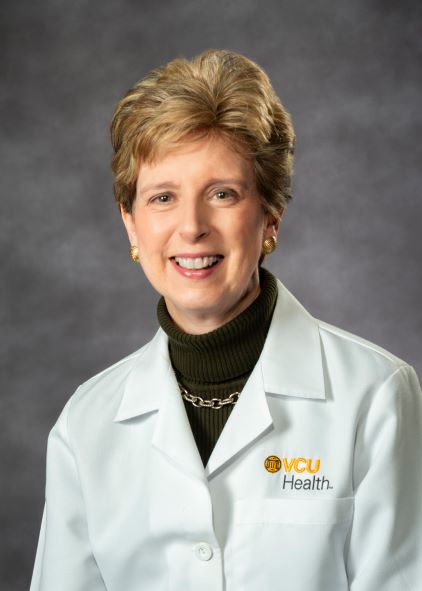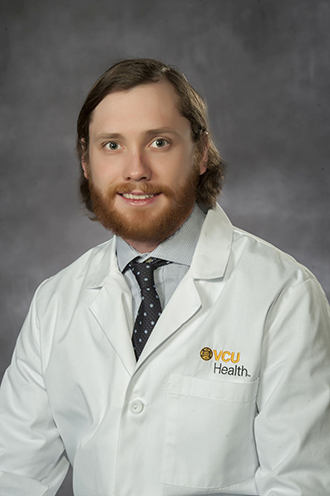Safety First, Every Day
The VCU Department of Radiology is a leader in medical imaging safety and compliance. Its Clinical Radiation Safety Office has a strong and comprehensive safety program unmatched anywhere in the area.
Overview
A Leader in Clinical Radiation Safety and Medical Imaging Safety and Compliance
The VCU Department of Radiology places a strong emphasis not only on quality and expertise of medical imaging services, but also on safety, including radiation safety. The commitment to definitive processes and clear protocols allows us to produce quality images while minimizing the risk of exposure to both staff and patients from medical imaging procedures. Thus, the VCU Department of Radiology launched the Clinical Radiation Safety Office with qualified medical imaging safety professionals and educators.
The Department has become a leader in medical imaging safety with a comprehensive program unmatched anywhere in the area. In fact, we are one of the few radiology departments in the United States to have an expert team entirely dedicated to medical imaging safety in computed tomography (CT), fluoroscopy, magnetic resonance imaging (MRI), nuclear medicine, ultrasound and x-ray.
Medical imaging provides early and accurate diagnosis of disease, improved treatment planning, and image-guided therapies that help save lives every day. Conventional x-rays, CT, fluoroscopy, mammography and nuclear medicine are examples of studies which involve the use of ionizing radiation. Ultrasound and MRI do not involve the use of ionizing radiation. For these reasons, medical imaging safety plays a major role in education, research and patient care.
The Clinical Radiation Safety Office performs radiation safety and compliance observations quarterly for 53 locations throughout the VCU Health System. Radiation safety observation scores are reported to the Clinical Radiation Safety Committee (CRSC). Using the quarterly reports, training needs are identified and communicated to department managers.
The CRSC creates best practices for the use of ionizing radiation equipment in an academic medical center setting. Additionally, the Committee is responsible for meeting the Joint Commission compliance requirements and creating a safe environment for staff, patients and visitors.
The VCU Department of Radiology safety program includes:
On-site medical radiation physicists monitor and maintain the equipment to ensure radiation delivered is accurate and compliant with our protocols for the lowest allowable dosing. This level of accountability safeguards patient and user safety.
Our Department has undergone a rigorous review process to meet nationally-accepted standards and to receive full accreditation of all services and equipment from the American College of Radiology (ACR).
The ACR accreditation demonstrates that our faculty and staff are well-qualified to perform and interpret medical images and to conduct image-guided therapeutic interventions. In addition, all equipment and imaging techniques meet or exceed nationally-accepted quality assurance and safety guidelines.
Low-dose computed tomography techniques use the minimal amount of radiation necessary to obtain a quality diagnostic study. Utilizing the latest dosing protocols and state-of-the-art equipment, we can reduce radiation exposure.
We are dedicated to performing the scan right the first time and only on the indicated area to limit the amount of radiation exposure. Our comprehensive program includes continuous monitoring, maintenance and calibration of equipment by on-site diagnostic medical radiation physicists.
The VCU Department of Radiology participates in the Alliance for Radiation Safety in Pediatric Imaging "Image Gently" initiative. This initiative promotes special safety precautions for children receiving radiological services.
As a participant in the "Image Gently" initiative, our pediatric radiologists oversee procedures to ensure we use the lowest amount of radiation for adequate image resolution of an indicated area.
Leaders in Safety and Compliance
Clinical Radiation Safety Office staff engage with the health system to improve safety and compliance

Ann S. Fulcher, M.D., FACR, FSAR. FSABI
Tenured Professor and Chair, Department of Radiology

Ann S. Fulcher, M.D., FACR, FSAR. FSABI
Tenured Professor and Chair, Department of Radiology
Radiology
Tenured Professor and Chair, Department of Radiology
Director, Enterprise Wide Radiation Safety Initiative
Director, Enterprise Wide Imaging Safety & Compliance Initiative
Phone: (804) 828-6600
Fax: (804) 828-6129
Email: ann.fulcher@vcuhealth.org
Address/Location:
West Hospital

Ryan Wargo, M.S., DABR
Associate Professor; Chair, Division of Diagnostic Medical Physics

Ryan Wargo, M.S., DABR
Associate Professor; Chair, Division of Diagnostic Medical Physics
Radiology
Phone: (804) 828-0991
Fax: (804) 828-6577
Email: richard.wargo@vcuhealth.org
Address/Location:
Ambulatory Care Center, Room B021C
Clinical Radiation Safety Office Administrative Staff Directory.
Please click on the accordion for contact information.
2024: Safety Training and Compliance in Numbers
0
#
Safety Training Sessions
0
#
Team Members Trained
0
#
Clinical Site Visits
0
#
Clinical Locations Served
Sonya Echols, Ph.D., RT(R)(T)(QM)
Manager, Imaging Safety and Compliance
p: (804) 628-0817
Ayanna Williams
Program Support Assistant, Clinical Radiation Safety Office
p: (804) 828-6368
Jessica Hutchings, BSRS, RT(R)(CT)(BD)
Fluoroscopy/Diagnostic Imaging Safety Educator, Clinical Radiation Safety Office
p: (804) 828-6605
Kennedy Juelicher, MEd, RT(R)(CT)(MR)(MRSO)
MRI Imaging Safety Educator, Clinical Radiation Safety Office
p: (804) 628-6190
M. Ferell Justice, M.S.Ed., RT(R)
Associate Director, Imaging Safety, Compliance, and Technology
p: (804) 628-5592
Jennifer Metts MBA, RDMS (AB, OB/GYN, PS), RVT
Ultrasound Imaging Safety Educator, Clinical Radiation Safety Office
p: (804) 628-4901
Rachel Perkinson Varrell
Business Analyst, Clinical Radiation Safety Office
p: (804) 828-6368
David Peterson
Manager, Radiology Informatics and Engineering
p: (804) 828-5592
April Dickinson, BS, RT(R)(M)(CT)(BD)(MR)
CT Imaging Safety Educator
p: (804) 828-5283
Safety Resources
Learn more about clinical radiation safety and medical imaging safety and compliance.
Each hyperlink will open in a new browser window.
Each hyperlink will open in a new browser window.